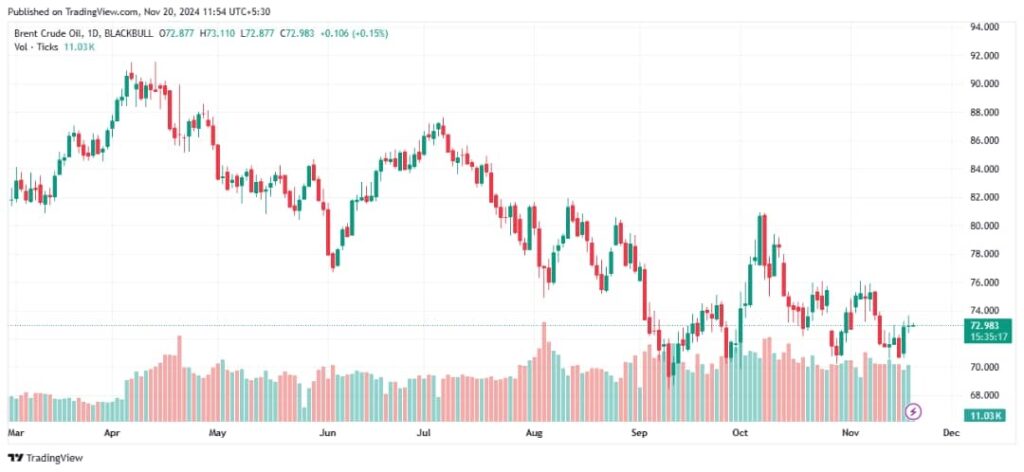
Akintunde Oyedokun
Research Analyst
Oil prices held steady Tuesday as Norway’s Johan Sverdrup oilfield restart offset concerns over Russia-Ukraine tensions. Brent crude settled at $73.31 per barrel, and U.S. WTI closed at $69.39.
Ukraine’s missile strike on Russian territory heightened supply risks, while rising U.S. crude stockpiles and Iran’s uranium proposal limited price gains. Increased Chinese crude imports offered some market support.
Canada’s Inflation Climbs To 2.0% In October
Canada’s inflation rate rose to 2.0% in October, up from 1.6% in September, driven by slower declines in gas prices. Core inflation also ticked higher, and food prices increased by 2.7%.
The data has reduced the likelihood of a large rate cut by the Bank of Canada next month, with markets now predicting a 26% chance of a 50-basis-point reduction.
Schmid: Fed’s Rate Cuts Reflect Confidence In Inflation’s Return To 2% Target
Kansas City Fed President Jeffrey Schmid highlighted that recent interest rate cuts signal growing confidence that inflation is on track to meet the Fed’s 2% target. However, he noted that it’s uncertain how much further rates will drop. Schmid also stated that while large fiscal deficits won’t trigger inflation, they could result in persistently higher interest rates, stressing the need for the Fed’s independence in managing monetary policy.
Rand Slides Amid Geopolitical Tensions, Rate Cut Speculation
The South African rand dropped 0.85% to 18.0950 per dollar on Tuesday as Putin’s revised nuclear doctrine heightened global risk aversion. Anticipation of a 25 basis point rate cut by the South African Reserve Bank further weighed on the currency. The Top-40 index gained 0.1%, while the 2030 bond yield fell slightly to 9.11%.
FIRS Advocates VAT Reform For Equity
FIRS Chairman Zacch Adedeji has called for a fairer VAT system, proposing that revenues be allocated based on consumption rather than the location of corporate head offices. Currently, Lagos, Rivers, and the FCT receive over 70% of VAT, leaving other states with minimal benefits.
The proposed reform, part of new tax bills, aims to ensure all states benefit from VAT revenues. However, it has sparked controversy, with concerns from some regions about potential disadvantages.








